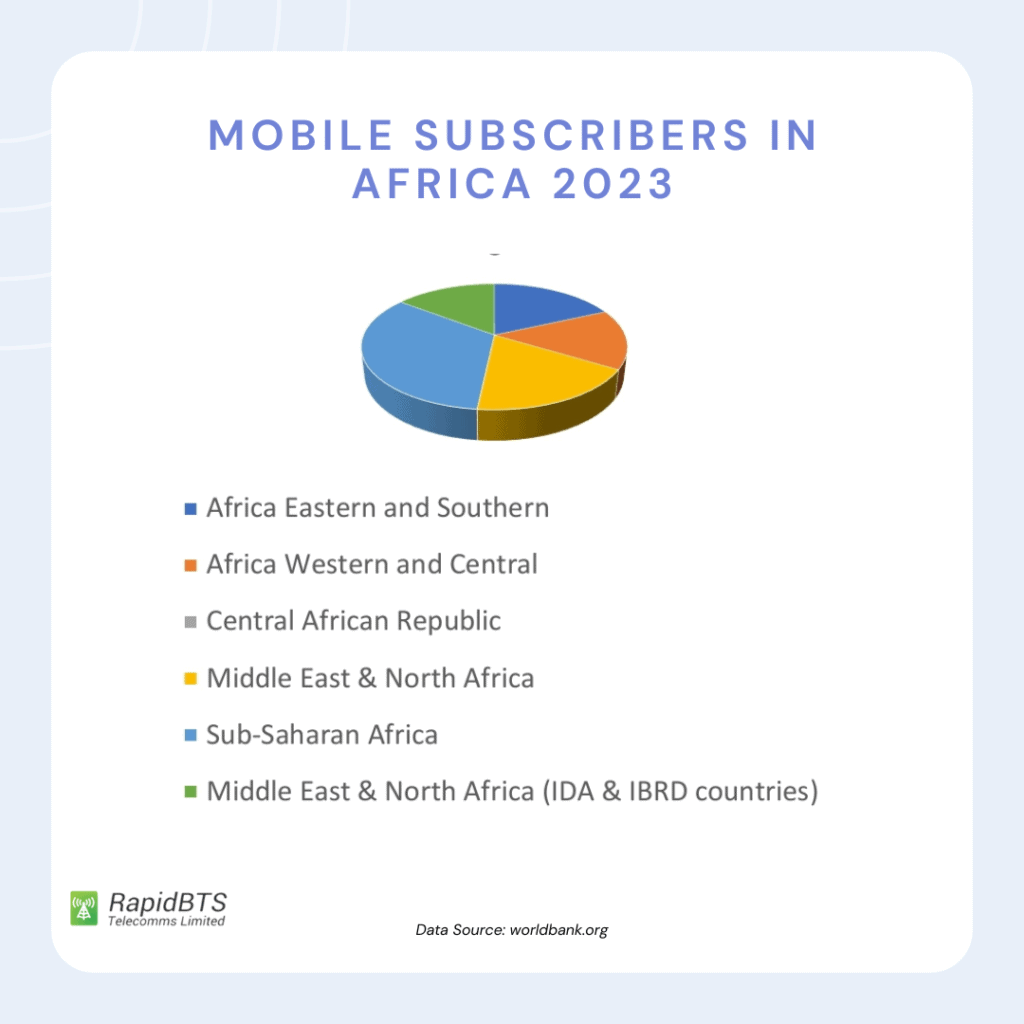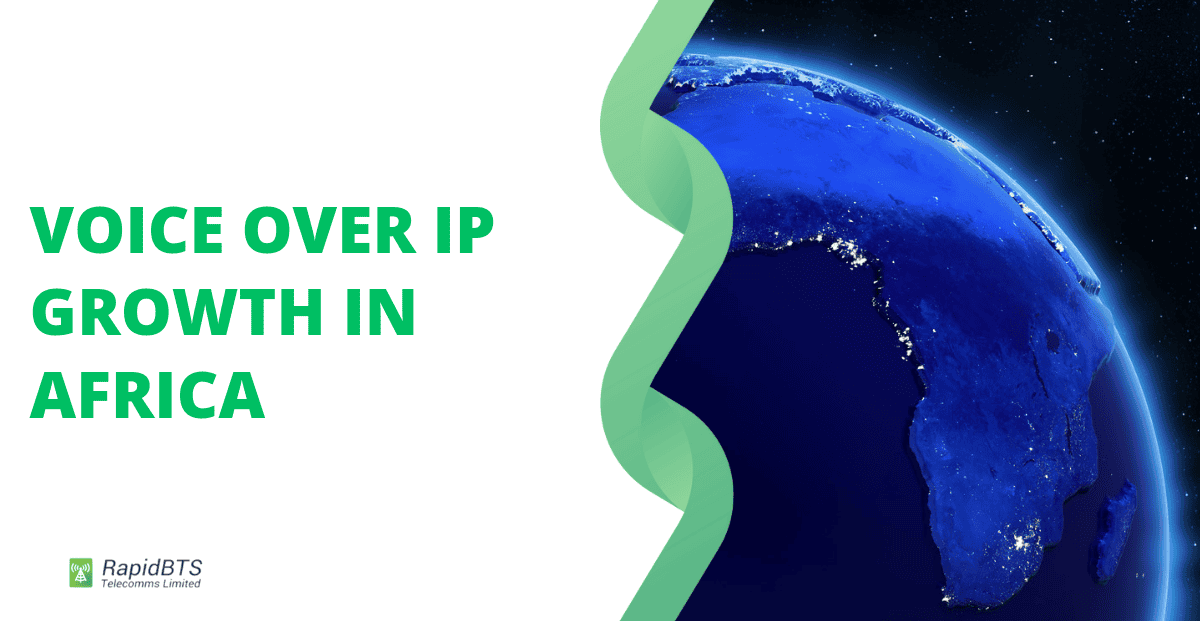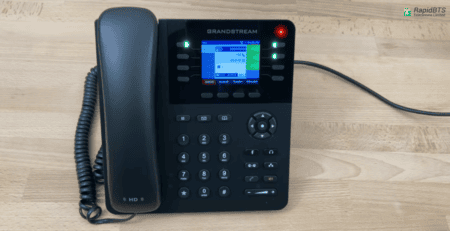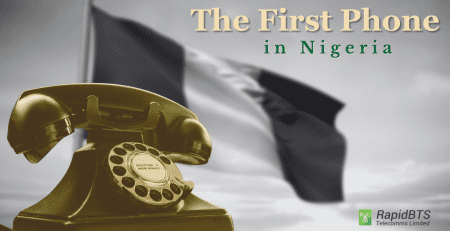VoIP Growth in Africa: Market Size and Forecast
In recent years, Africa has witnessed remarkable growth in adopting Voice over Internet Protocol (VoIP) technology. This innovative and cost-effective communication solution has gained significant traction across the continent, revolutionizing the way people connect and communicate.
With its ability to transmit voice calls over the internet, VoIP has overcome the limitations of traditional telephony systems, offering flexibility, scalability, and reduced costs for businesses and individuals alike. Many are turning to VoIP as their preferred telecommunication solution, from small enterprises to large corporations.
According to industry experts, the VoIP market in Africa is experiencing exponential growth, with a projected market size reaching 100s of millions of dollars in the coming years. This surge in demand can be attributed to the improved broadband infrastructure, increasing internet penetration, and the need for affordable and reliable communication services.
The telecommunications market in Africa
Africa’s telecommunications landscape has undergone a remarkable transformation in recent years. The continent has seen a rapid increase in mobile phone penetration, with the number of mobile subscribers reaching over 1 billion as of 2023.

The traditional telephony market in Africa has been dominated by fixed-line operators, but the adoption of mobile technology has significantly disrupted this landscape. This shift has been particularly pronounced in rural and underserved areas, where mobile networks have provided access to communication services that were previously unavailable or unreliable.
Alongside the growth of mobile technology, the internet has also become increasingly accessible in Africa. Improvements in broadband infrastructure, including the deployment of fiber-optic networks and the expansion of 3G and 4G cellular networks, have contributed to a steady increase in internet penetration across the continent.
Factors contributing to the growth of VoIP in Africa
The rapid growth of VoIP in Africa can be attributed to several key factors.
Firstly, the improved availability and affordability of broadband internet have been instrumental in enabling the widespread adoption of VoIP services. As more people gain access to reliable and high-speed internet, the viability of VoIP as a communication solution has increased significantly.
Another crucial factor is the cost-effectiveness of VoIP compared to traditional telephony. In a region where economic constraints and limited access to communication services have been longstanding challenges, the ability of VoIP to provide affordable voice and video communication has been a major driver of its adoption.
Businesses and individuals can benefit from significant cost savings by utilizing VoIP instead of traditional telephone lines, which often have high installation and recurring costs.
The versatility and flexibility of VoIP technology have also contributed to its growth in Africa. VoIP solutions can be easily integrated with a wide range of devices, from desktop computers to mobile phones and tablets, allowing users to stay connected from anywhere with an internet connection.
VoIP Market size and forecast in Africa
The VoIP market in Africa has experienced remarkable growth in recent years, and industry experts predict that this trend will continue in the coming years. According to a report by ResearchandMarkets, the African VoIP market is valued at $116.21 million in 2024 and is expected to reach $176.81 million by 2029, growing at a CAGR of 8.76% during the forecast period.
This surge in market size can be attributed to the increasing adoption of VoIP services across various sectors, including small and medium-sized enterprises (SMEs), large corporations, and individual consumers. As businesses seek to optimize their communication infrastructure and reduce operational costs, the appeal of VoIP solutions has become increasingly evident.
The growth of the VoIP market in Africa is also driven by the ongoing expansion of broadband connectivity and the increasing availability of affordable internet-enabled devices. As more people gain access to reliable and high-speed internet, the demand for VoIP services is expected to continue to rise, fueling the market’s expansion across the continent.
The Challenges and Opportunities
While the VoIP market in Africa has experienced remarkable growth, it also faces several challenges that need to be addressed to ensure its continued expansion and success.
One of the primary challenges is the uneven distribution of broadband infrastructure across the continent. Many rural and remote areas still lack access to reliable and high-speed internet, which is a critical requirement for the effective deployment of VoIP services.
Another challenge is the regulatory landscape, which varies across different African countries. Some governments have imposed restrictions or taxes on VoIP services, which can hinder their adoption and affordability.
Despite these challenges, the VoIP market in Africa also presents significant opportunities. The rising demand for affordable and reliable communication services, coupled with the increasing penetration of smartphones and the expansion of mobile networks, creates a favourable environment for VoIP to thrive. Businesses, particularly SMEs, can leverage VoIP to enhance their communication capabilities, improve collaboration, and reduce operational costs, thereby boosting their competitiveness in the market.
Future trends and predictions
As the VoIP market in Africa continues to evolve, several key trends and predictions emerge that will shape the future of this industry.
- Emergence of cloud-based VoIP solutions: The shift towards cloud-based services is expected to gain momentum in the African VoIP market. Cloud-based VoIP solutions offer greater flexibility, scalability, and cost-effectiveness, making them attractive to businesses of all sizes. This trend will enable more organizations to access advanced communication features without the need for complex on-premises infrastructure.
- Advancements in VoIP security and reliability: As the reliance on VoIP technology grows, there will be an increased focus on enhancing the security and reliability of these services. Providers will need to invest in robust security measures, such as encryption and authentication protocols, to address concerns around data privacy and secure communication.
- Expansion of VoIP into emerging sectors: While VoIP has primarily been adopted in the business and enterprise sectors, the future will see its expansion into emerging areas, such as healthcare, education, and government.
- Convergence of VoIP with other technologies: The VoIP market in Africa is expected to witness greater convergence with other emerging technologies, such as the Internet of Things (IoT), artificial intelligence, and blockchain.
As these trends unfold, the VoIP market in Africa is poised to continue its remarkable growth trajectory, transforming the way people and organizations communicate and collaborate across the continent.
By providing affordable and accessible communication services, VoIP is bridging the digital divide and empowering communities that have historically been underserved by traditional telephony systems. This access to reliable and cost-effective communication has the potential to catalyze economic growth, enhance educational opportunities, and improve healthcare delivery, ultimately contributing to the overall development and prosperity of the African continent.
Moreover, the integration of VoIP with emerging technologies, such as cloud computing, IoT, and artificial intelligence, will further amplify its impact, enabling the creation of innovative solutions that address the unique challenges and needs of the African market.
Resources:












